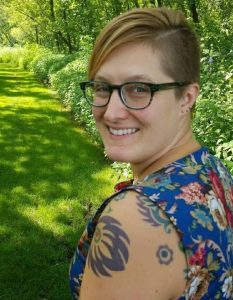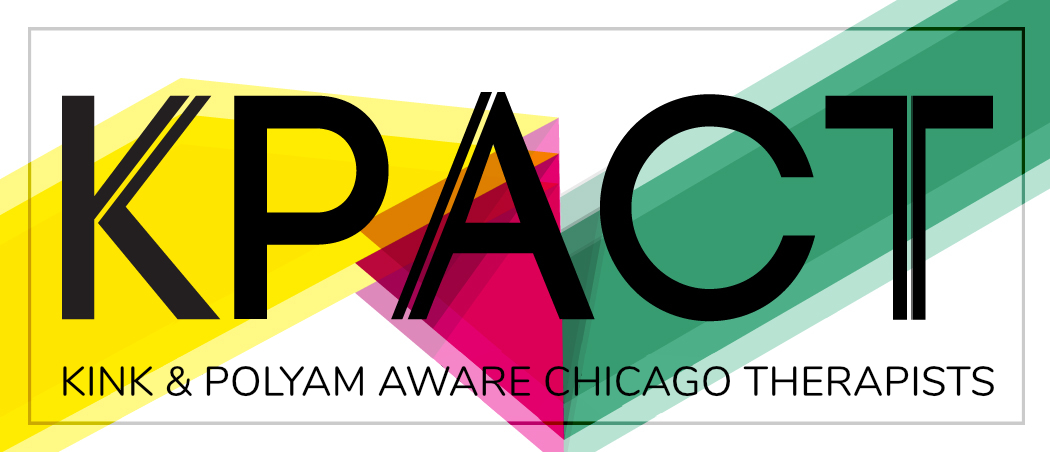Hello, my name is Jen Rafacz and I am a co-lead on the American Psychological Association (APA) Division 44 Consensual Non-monogamy Task Force working on the Inclusive Demographic Forms Campaign. I am really excited to have been asked to write about this campaign and share with all of you the importance of the Taskforce. This is a really, really important campaign for KPACT therapists and the clients we all serve. That task force is working to increase awareness and inclusivity about consensual non-monogamy (CNM) and diverse expressions of intimate relationships!! This is something I know that is near and dear to many of us since we are all in KPACT.
Overall, the Task Force has 12 Initiatives that have both co-leads and collaborators coming together to make change for this community. We are working towards creating resources, generating research and advocating for inclusivity of consensually non-monogamy. Our hope is that these steps will bring us closer to normalizing the experiences that our clients and, some of us, have.
The Task Force and its initiatives aim to promote wider acceptance and support for people who practice CNM and give professional organizations extra support and guidelines so that can support these communities. We want to make it easier to get resources to clinicians working with people who practice CNM, to train student clinicians while in school and help provide resources to clients. The result should further destigmatize relationship diversity and help normalize our clients’ experiences on a larger scale.
I think all of this is amazing! Here are some of the things I most look forward to.
ACCESS TO INFORMATION
The Task Force achieving is the aggregation of resources and research on CNM in one place, so access and dissemination is easier. I know as a clinician it can be super challenging to find and obtain research and journal articles.
CROSS-DICIPLINARY IMPACT
While the Task Force is through Division 44 of the APA, I think the benefit will help all clinicians regardless of training and degree. It will bring guidelines to clinicians across disciplines, make language suggestions, and facilitate the process of clinicians sharing what we know with folks that know less about CNM. It also means we may start to generate more research, get more funding for that research, and build more understanding — which is better for everyone. When a big organization like APA backs and creates something, it benefits all of us now and in the future as well as potentially impacting other clinical practices.
NATION-WIDE CAMPAIGN
My specific role on the Inclusive Demographic Forms Campaign has included conducting a survey to study how clinicians currently language and assess relationship diversity on their intake forms. We are just wrapping up the research this week and are hoping to make final recommendations to the Task Force in the next month. It’s a big deal to have specific suggestions for inclusive language to help clinicians who are not well-versed in CNM.
My role is a one-year position. For the remainder of 2019, I will be focused on co-authoring an article and creating a national campaign about the importance of inclusive language. We will be looking at LGBTQ+ research as one primary source. We are hoping to integrate the knowledge that the LGBTQ+ community has learned from their taskforce and expand it to CNM. Our campaign is going to reach out to clinicians, organizations, researchers and schools asking them to commit to using more inclusive language on their intake forms. And we hope they do!
It’s still feels strange and new to be a part of this campaign. The year is flying by, but I am optimistic we can do it all. There are some contributors helping me and my other co-lead for which we are deeply grateful. The contributors are people with interests in supporting the CNM and in this taskforce. Some of the contributors are psychology graduate students, others are therapists, and some have passion for CNM. They help co-leads finish their initiatives in various ways. The next step for ours are to help us with data analysis and the write our article.
BUILDING CONNECTIONS
The other great part of being a part of the Task Force is meeting and working
with clinicians and researchers around the country. We even have some folks across an ocean! It
has been a pleasure to collaborate and hear all the great work that we are
isolated from because this area of research and knowledge is still so new. I know people are working on other posters,
panels, presentations and articles together to expand the impact of the
taskforce. People are also meeting together at conferences and making
connections. I love KPACT and its great to feel a larger community also.
HOW YOU CAN HELP
Staying up to date is important is our fast-changing world. I want to share the website with all of you, so that you can stay up to date on
the progress of the Task Force and what we will be doing. One last thing I ask all of you to do to
help this campaign is to sign our petition to support
relationship diversity issues.
Thanks!

Dr. Jen Rafacz is a licensed clinical psychologist and an AASECT certified sex therapist who practices in Chicago, IL. Their practice consists of adults and couples addressing a range of clinical issues and has speciality in sex therapy. They also have a passion for working with people exploring alternative lifestyles and sexuality. https://www.family-institute.org/therapists-locations/staff/jen-rafacz

